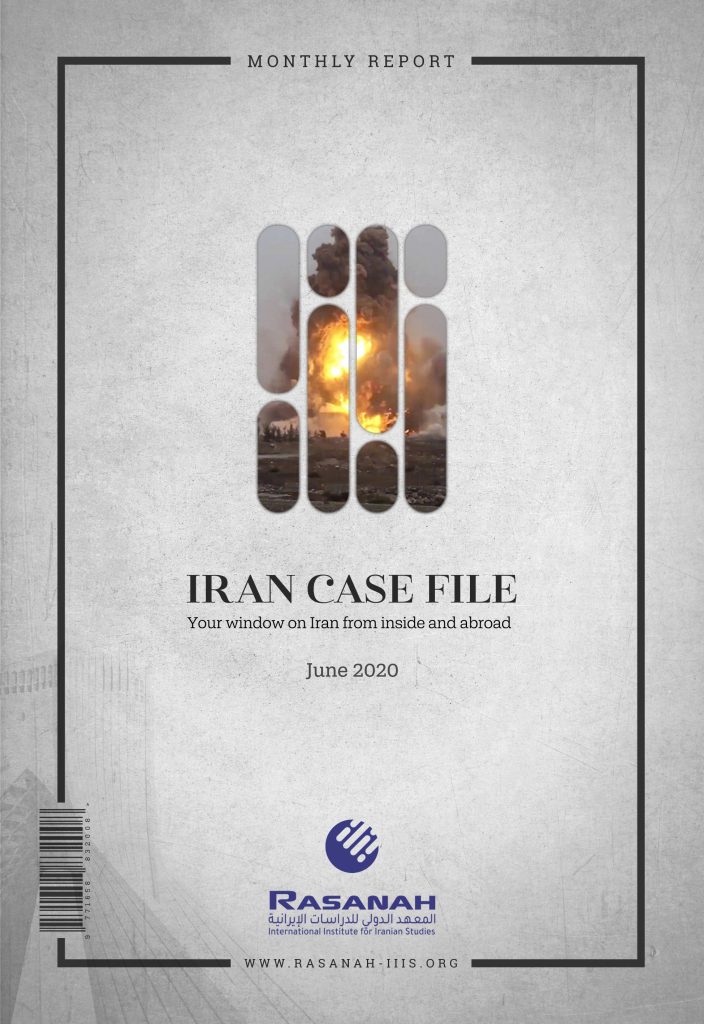
The International Institute for Iranian Studies (Rasanah) has issued the Iran Case File for June 2020, providing readers in general and researchers in particular an in-depth analysis and comprehensive review of Iranian affairs at variant levels. The file is divided into three main parts: Internal Affairs, Arab Affairs, and International Affairs.
Deteriorating Economy and Ambiguous Blasts
At home, we find that Iran is waging an ideological war led by clerics to expel US forces from Iraq with the aim of reducing the US presence and unleashing its allied militias to wrest control over the Iraqi state. Several of the fatwas state that that signing any security agreement with the United States is unlawful. The Political File discusses the anti-corruption campaign led by the current chief of the judiciary Ebrahim Raisi against Tabari, a former Iranian judge. The Economic File reviews how the Iranian government is attempting to alleviate the suffering of the Iranian people resulting from the harsh US economic sanctions. The government has launched what is known as “justice shares,” low-price shares which enable savers to invest their savings via purchasing shares of some government-controlled Iranian firms from the Iranian stock exchange. The aim is to allocate the revenues of the shares to Iranian families and contain monetary liquidity to curb corruption.
Militarily, Iran continues to hold consecutive military maneuvers with the aim of enhancing its presence and preparedness to go ahead with its regional interventions. A series of explosions took place at Iran’s nuclear sites and other key military sites.
Escalation in Iraq and Confused European Positions
As for Arab Affairs, this file sheds lights on the continuous transformations in Iraq. The new Iraqi Prime Minister Mustafa al-Kazemi has taken serious steps towards curbing the influence of Iran-aligned armed militias existing on Iraqi soil. Several Iraqi political factions are responding to his pursuit to strengthen the Iraqi national state, restore order on Iraqi borders and rebuild confidence between the Iraqi people and their government. In the meantime, Iran is pushing towards connecting Iraq politically and economically with Iran. It supports the pro-Velayat-e Faqih militias, strengthens the Popular Mobilization Forces (PMF), and attempts to thwart the strategic dialogue between the United States and Iraq. Iran is also using its usual lever in Yemen by pushing the Houthis to mount more missile attacks on Saudi territories, impede the path of negotiations, and is also hinting that there is significant pollution in the Red Sea.
On the international arena, the European positions are still fluctuating regarding the nuclear deal. The United States intensified its efforts aimed at issuing laws to hinder the export of weapons to Iran. Some committees in the US Congress moved and proposed new bills on the manufacturing of weapons in countries like Russia and China. The United States also issued the Caesar Act which places restrictions on Iran’s participation in reconstructing Syria.


